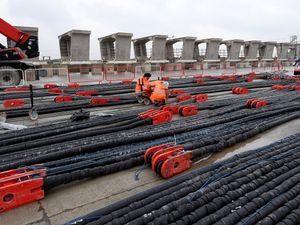Star comment: Banks coining it while we're left out of pocket
The unsavoury practices of energy giants and utility companies, particularly water companies, have attracted necessary scrutiny during the past year.

Too many sectors are profiteering during a cost of living crisis, while the nation becomes poorer and money is siphoned into the hands of the few.
Banks should also face legitimate enquiries as they hike borrowing rates to new highs, while failing to pass on similar rates to savers.
As the cost of living crisis continues to bite and as inflation remains worryingly high, savers are watching their hard-earned cash drifting away.
The value of money kept in the bank is diminishing quickly as saving rates fail to keep pace with inflation and lump sums are being frittered away.
Savers might need to look elsewhere, investing in other items or taking advice on how to be better prepared for the proverbial rainy day.
Just as energy giants failed to pass on a fall in the price of fuel – particularly diesel – and made colossal sums by charging inflated prices at the pumps, so banks are coining it in as they offer interest rates that are entirely in their favour.
Of course, in a free market economy, it’s important that businesses are able to make a profit so that they continue to provide employment and so that their work and investment is rewarded.
However, the sums involved are causing needless pain for the masses, who find themselves increasingly worse off. It would be less unpalatable if the banks continued to provide a decent standard of service and refrained from closing so many branches. Normal people suffer, but the banks are raking it in.
***
The world’s leading test team is playing the pretender to that crown. The mighty Australia will line-up against Ben Stokes’s swashbuckling England for the most eagerly-anticipated Ashes series in a generation.
At stake is cricket’s most historic trophy – as well as bragging rights between two of the most important cricketing nations on earth.
It is an important series, not just for Australia and England, but also for the future of Test cricket. Short form cricket is now the choice for many, and Birmingham will host The Hundred in a few weeks time.
The pillars upon which the game has been built are fast crumbling in the face of corporate interests, inward investment, and TV rights.
But for the purest, Test cricket remains supreme. It is a shame that the game is no longer on terrestrial TV, which would allow fans to connect.



